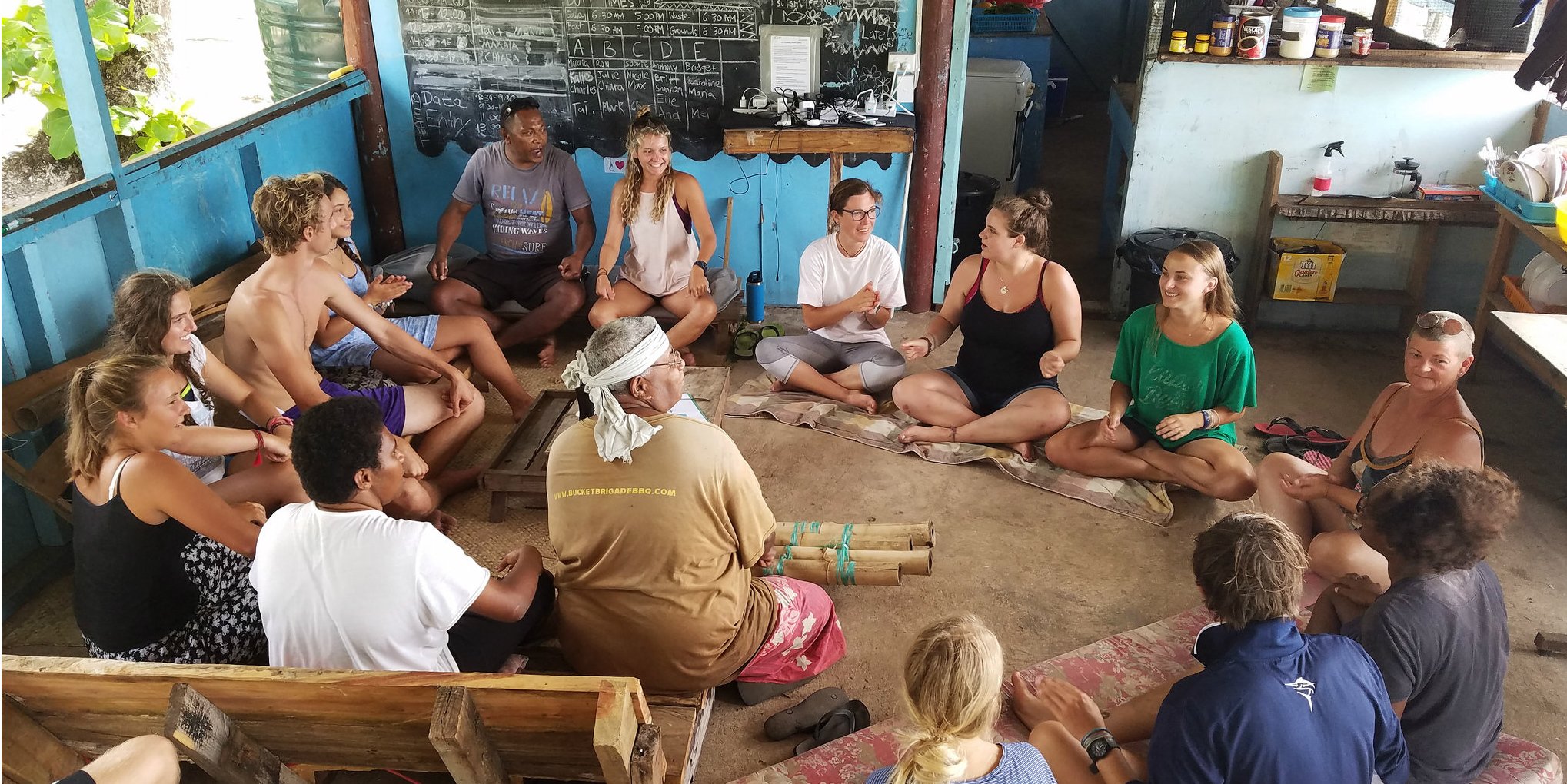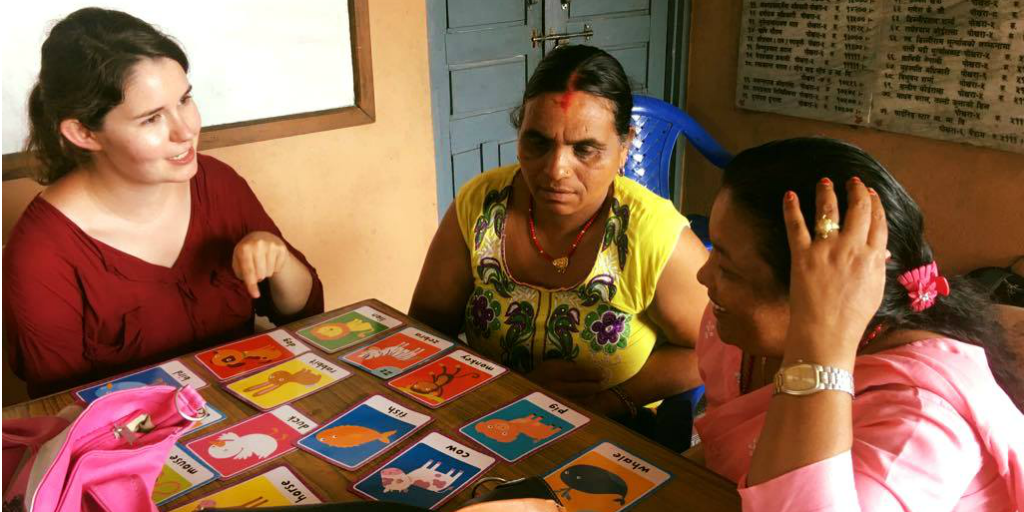10 ways to travel responsibly that you need to know about
GVI
Posted: June 3, 2022
You may have heard about responsible travel, but do you know what it’s all about, or what to consider before getting involved in a responsible travel experience? Let’s find out.
Responsible travel forms the foundation of the programs of many volunteer abroad organisations.
In fact, the staff involved in these types of overseas experiences are often experts in responsible travel, because they’ve done so much of it themselves!
Keen to become a responsible traveller? Well, let’s take a closer look at what responsible travel means and how you can make a start.
What is sustainable tourism?
The United Nations World Tourism Organisation (UNWTO) defines sustainable tourism as: “Tourism that takes full account of its current and future economic, social and environmental impacts, addressing the needs of visitors, the industry, the environment and host communities”.
Put simply, sustainable tourism is the concept of travelling and exploring a destination as a tourist while respecting the culture, environment and people of that destination. The main focus of sustainable tourism is to address global issues such as climate change, poverty reduction etc by slowly changing the tourism industry.
Educational travel provider Alandis suggests there are three main benefits of sustainable tourism. Namely:
- Economic benefits: creating a positive economic impact – such as job creation, community development and improved infrastructure
- Environmental benefits: conserving biodiversity and natural resources
- Social benefits: putting local people at the centre to create a meaningful and sustainable long-term impact.
So, what is responsible travel?
While sustainable tourism focuses on the big picture, responsible tourism focuses on the smaller actions you as an individual can take when visiting a country that will contribute towards this goal. The focus of responsible travel is on individual actions and is unique to addressing the needs of the country you’re in.
How to make an impact as a responsible traveller
Start at home
Preparing for your responsible travel experience at home is a good place to start. Once you’re in-country, it can be more difficult to know what is responsible and what is not.
Here are some of the things you can do at home to make sure you are contributing to sustainable tourism:
1) Read up on the local laws and culture
Before you get on that plane, browse Google and learn as much as you can about local customs, traditions, and health and safety considerations.
Get to know the cultures and traditions that are specific to the area you’ll be visiting, as well as the national norms. For instance, find out which hand gestures are complimentary and which ones are considered rude. Also check up on laws relating to where tourists are allowed to travel, and the acceptable way to dress.
By keeping these in mind while you travel, you’ll be able to interact with the local community in the best ways possible. This is also a great way to ensure a pleasant experience for the duration of your stay.
2) Research any animal activities
Is riding an elephant still on your bucket list for Thailand? Well, it’s time to take it off.
Part of travelling responsibly is being aware of how ethical the leisure activities you take part in actually are. And this is especially important when it comes to animals.
Because animals can’t tell us exactly how they feel in a particular situation, we need to take extra steps to ensure their well-being, especially if we choose to interact with them.
It’s important to respect the environments animals live in, work with them in ways that are appropriate and beneficial, and prevent situations where the animals themselves become attractions – like elephant rides.
If you plan to take part in any programs focused on animal care, marine or wildlife conservation, finding out more about how these activities are run is essential.
Take a look at our ethical stance on animal volunteering to find out more.
Many organisations are upfront and clear about their procedures when it comes to animal interactions. But others aren’t.
So what should you look out for to ensure that you get involved with an organisation that has the animals’ best interests at heart?
Here are some things to look out for in an operator:
- They offer animal interactions that are necessary and not just done for fun.
- They have a clear stance on what ethical animal interaction means to them and how they implement this in all their activities.
- They are a registered organisation.
- They are transparent about their activities on the project.
3) Choose a homestay or eco-friendly accommodation
The ideal way to travel responsibly is to live in the local community. This way you can contribute to the development of the community on a daily basis and gain an appreciation for the culture of the country by becoming immersed in it.
If no homestays are available, you can opt to stay in eco-friendly accommodation. This is one of the first steps in translating your responsible travel knowledge into action on the ground.
So, can staying in a hotel offer an eco-friendly experience? Yes, it can, but you should confirm this before putting down your deposit. You can research the hotel to make sure they offer energy- and water-efficient amenities and activities.
You should also be able to find out whether the culture of the country you’re visiting is incorporated into the hotel in a way that is accurate and ethical. One factor in favour of this is when local people form part of or partner with the establishment.
Hotels that offer an ethical and environmentally friendly stay can add to your responsible travel experience. Reading online reviews is a good way to get a feel for how eco-friendly and culturally tuned in an establishment is.
4) Volunteer abroad
Consider joining a program that will allow you to experience the country while also making a positive impact on the local community or environment.
Volunteering is a great way to experience a country in a responsible and ethical way while adding to global goals. Your travel experiences will be moulded by opportunities you may never have had if you were just a tourist – like volunteering with children in a mountain community!
Whether you have weeks, months or even a gap year, you’ll benefit from the cultural experience, contribute towards socio-economic initiatives while volunteering, and have a deeper understanding of the country you visited.
While abroad
1) Buy local
Original photo: by Kimberley Fowler licensed under Unsplash
When travelling, it can be tempting to seek out shops or restaurants that remind you of home. While there’s nothing wrong with this, remind yourself that you didn’t decide to travel so that you could feel like you were right back at home. Where’s the adventure in that?
Travel is about new places and experiences. So get out there and do just that!
Support local souvenir shops, eat where local people eat, and consider trying a new local dish every day.
This isn’t only a great way to add to the economy of the area you’re in, it’s also one of the best ways to learn about the culture, traditions and even the language of the country you’re visiting.
2) Think before you bargain
It can be tempting to negotiate for a lower price at local markets. Although bargaining is part of the culture in some regions, it’s important to keep the bigger picture in mind and ask yourself if saving that extra bit of cash is worth it?
That $1 you got off of the original price might not be a lot to you, but it could mean less food on the table for the vendor’s family the next day.
For those of us who are able to travel abroad, paying full price is one way of building on global-development efforts wherever you are.
3) Minimise your everyday environmental footprint
Think twice about accepting that plastic bag or styrofoam cup. Opt for reusable items instead – like metal straws and cloth bags. Why?
In some countries waste management is a challenge, and visitors can add to the problem in a significant way by making use of single-use items.
You can also consider your environmental impact while travelling from place to place. Can you get there on a mechanical bike and avoid the carbon emissions that come from taking a train, bus or taxi?
Here are some of the things you can do to take control of your environmental impact while travelling abroad:
- Carry a shopping bag with you so you don’t have to make use of plastic bags.
- Opt for sit-down meals instead of takeaways to avoid using single-use containers.
- When visiting local sites, choose walking or biking tours instead of bus or motorcycle tours.
- Reuse your plastic water bottle.
4) Contribute in ways that build on community development
Adding to sustainable efforts may not be as easy as it seems once you’ve arrived at your destination abroad. Why? Because seeing a child or adult asking for donations can make anyone want to offer them whatever they can spare.
But, part of travelling responsibly is keeping in mind that sustainable efforts are best when it comes to community development. While giving money to someone may make you feel better, adding to sustainable efforts is more likely to assist the whole community in the long term.
Wondering what types of activities count as sustainable community development efforts? Well, they include:
- Assisting local women in achieving better access to social, and economic equality.
- Participating in efforts that add to children’s education.
- Getting involved in recycling projects, and water and environmental conservation activities.
By being part of these types of efforts abroad, you’ll make sure that you’re adding to community development in a meaningful way.
5) Use public transport
Making use of public transport is another way you can reduce your carbon footprint.
Instead of taking a taxi for a solo ride, grab a bus ticket and travel with local people. It’s a great way to see the place you’re staying in, and to stick to your travel budget!
Want to see the country at your own pace? Why not rent a bicycle and start exploring?
6) Talk about responsible travel with your friends and family
Travelling responsibly adds awareness to any experience abroad.
After experiencing responsible travel for yourself, you’ll have a wealth of knowledge and advice that you can share with someone else who is just getting started.
Discussing your trip with friends and family is one way to fill them in on the importance of responsible travel, and make them aware of how responsible travel adds to your time abroad.
So what’s one of the best ways to take that first step to becoming a more responsible traveller? That’s easy.
Take a look at GVI’s international, award-winning volunteering programs and internships abroad and make a start in your responsible travel journey today!













